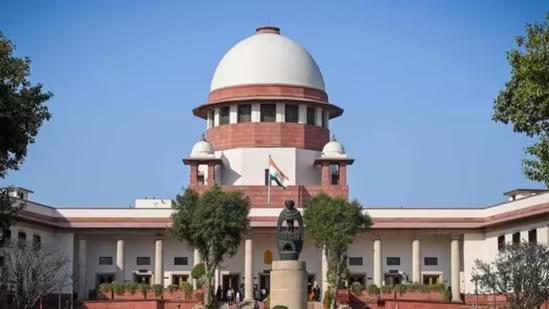
Court Can’t Grant Assent to Bills, Only Gov & Prez Can: Maha to SC
The Maharashtra government has made a crucial argument in the Supreme Court, stating that courts cannot grant assent to bills and that only the Governor and President have the power to do so. This statement was made by Senior Advocate Harish Salve, representing the Maharashtra government, during a hearing on a presidential reference regarding whether the court could impose timelines for the Governor and President to deal with bills passed by state Assemblies.
The presidential reference was filed by the Centre, seeking the Supreme Court’s opinion on whether the court could issue directions to the Governor and President to act within a certain timeframe on bills passed by the state Assemblies. The Centre argued that the court had the power to impose timelines, as the Governor and President were bound by the Constitution to act in a responsible and constitutional manner.
However, the Maharashtra government took a contrary view, arguing that the power to grant assent to bills lies with the Governor and President, and not with the court. According to the Constitution, the Governor and President have the power to assent to bills passed by the state Assemblies, and it is their discretion to decide whether to do so.
Salve, representing the Maharashtra government, pointed out that the court does not have the power to grant assent to bills, as it is a constitutional responsibility of the Governor and President. He argued that the court’s role is limited to interpreting the Constitution and ensuring that the Governor and President act in accordance with it, but it cannot usurp their powers.
The Maharashtra government’s argument is based on the concept of separation of powers, which is enshrined in the Constitution. According to this concept, the executive, legislative, and judicial branches of government are separate and independent, with each branch having its own powers and responsibilities.
Salve argued that the court’s role is limited to advising the Governor and President on the constitutional validity of bills, but it does not have the power to grant assent to them. He pointed out that the court’s judgment is not binding on the Governor and President, and they are free to accept or reject it.
The Maharashtra government’s argument has significant implications for the functioning of the government, particularly in the context of the recent controversy surrounding the Maharashtra state government’s decision to pass a bill to cancel the farm loan waiver scheme. The Centre had filed a petition in the Supreme Court, seeking to quash the bill, arguing that it was unconstitutional and violative of the principles of federalism.
The Maharashtra government’s argument that the court cannot grant assent to bills has the potential to thwart the Centre’s efforts to challenge the state government’s decisions. If the court accepts the Maharashtra government’s argument, it would mean that the Centre would have to approach the Governor or President to challenge the state government’s decisions, rather than seeking a judicial remedy.
The hearing is ongoing, and it remains to be seen how the Supreme Court will ultimately rule on the issue. However, the Maharashtra government’s argument has added a new layer of complexity to the controversy, highlighting the delicate balance of power between the Centre and the state governments.
Source:






